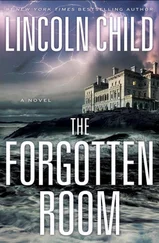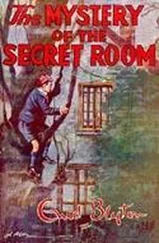There’s a pizza place up Irving, Hauser said. They spin the dough in the windows.
I saw everything. The stretching floury disks that collapsed on the hands of the dough makers in their chef’s hats, fists working the disks around, dough growing in girth, orbit, then back up in the air. I saw the huge wreath of flowers that hung from the closed entrance one morning, announcing the death of the old man, the pizza patriarch. I’d never seen a wreath that large. I was eight or nine. Not yet into trouble. I linked flowers with death. That huge wreath connected them for me.
I saw the shining lid of the ocean from Irving Street, the way it rose, on a clear day, like something that breathed, that was alive, down at the end of the avenues.
My son likes churches, I told Hauser. When I brought Jackson into Grace Cathedral he had a natural instinct to quiet in the home of someone’s god, not his, as we weren’t religious. He gazed around and then said to me, in a whispering happy voice, like he’d landed on something, an idea, “Mommy, when I grow up, I think I might want to be a king.”
He was never once a brat, I told Hauser, but as I said it I tried to dampen the instinct to talk up Jackson too much. People should know that some kids are not just nice people, but superior to most adults. But I didn’t want Hauser to pull back, suspect I was foisting an adoptee on him. Even as that was my plan. It was the only option I could imagine actually working. People in prison were full of dumb fantasies about how their futures might go. My own were all I had. “You’ve got something with him,” Sammy said. “Most of them don’t get involved with prisoners. Too jaded. We’ll just be getting over on them. But he is open .”
Hauser had a lost quality. He wasn’t someone who seemed to have much happening outside work. Not that he discussed his life with us. He did not. At Stanville, he was an oddball to the rest of the staff. The guards made fun of him, mostly as a way to make fun of us. Go teach those dumb bitches to read, Mr. Hauser. Teach those cows two plus two. They thought what he spent his life doing was pointless, not a worthy endeavor like watching us on security monitors or masturbating in a guard tower.
Hauser wasn’t an idiot. He was no Keath. But sometimes he acted like one. When I asked him to bring wire cutters to the library, I was pretty sure he’d do it. I had no plans to use them. I did it to test him.
Candy Peña bragged that Hauser was her boyfriend, that he got her “a whole grip” of knitting supplies. Anything she wanted, Candy told whoever came back to ad seg and was on her vent. If she wasn’t on death row Candy would know you don’t brag about something like that. You keep it to yourself and you cultivate it.
———
Jackson’s twelfth birthday was on a Tuesday, the 18th of December. I woke up that day and looked at the picture of a seven-year-old, which was all I had, from the last time I’d seen my son, more than four years earlier, when my mother brought him to the county jail. I’d met with them through scratched Plexiglas. He’d already grown so much. He was five when I was arrested. I didn’t know what he looked like now.
I hid the photo in my bra. All through class time that afternoon I thought about what I was going to say to Hauser, what words I would use to pressure him to help me with Jackson. I didn’t follow the class discussion, never once raised my hand. I was focused on the moment I would give him the photo.
I knew things weren’t going right when he looked up from his desk, as the others filed out. He was not happy to see me: that was the clue.
“Today is my son’s birthday.”
I put the picture down, to show him what a beautiful kid Jackson was. No one ever said Jackson wasn’t beautiful.
He barely looked at the photo.
“This is him,” I soldiered on. “You can have it.”
It was Jackson’s class picture from second grade. He was kneeling on a fake log with a fake autumn background. Smiling and shiny like his face was a polished apple.
Hauser did not pick up the photo. “I can’t accept it.”
“I’m giving it to you. I want you to have it.”
“I know you do, but it’s not right. Save it for yourself.”
Didn’t he at least want to see what Jackson looked like? I asked, trying to control my tone, because anger would get me nowhere. I was ready to lay things out, to ask for his help. I started to, and he interrupted.
“I’m really sorry about your son, but I can’t be involved.”
———
It was the Christmas holidays, a joy-free time for us at Stanville.
In January, when classes were scheduled to resume, we were told continuing education was suspended. Hauser had quit his job, or been fired. Whatever happens to staff they don’t tell us. Rumors fly but no one cared much about Hauser except Candy Peña. Candy hollered up the vent to Teardrop, when Teardrop did a stretch in ad seg, that Hauser had been walked off because of his overfamiliarity with Candy.
———
I’d hit a dead end. It was me alone with my pictures of Jackson, the newest of them almost five years out of date. I had the wire cutters Hauser had given me, back when he was behaving like he was supposed to. I had a large dowel I’d made in woodshop. I hid them both on the yard, beyond Tower One. I dug with my hands. I’d seen the Native American women do that, to hide their tobacco on main yard. It had rained, which was when people buried things. Patiently clawing, using their fingernails, their hands, as tools, to dig. I stayed behind Tower One a long time, as long as it took to bury the dowel and the wire cutters. No one reprimanded me, or saw. Perhaps Sammy was right, that it was a blind spot. It was just dreaming. If that dream came true, it was a dream of death. I’d get fried on the fence like the rabbits that got too close.
A coyote died on the fence, hung there for everyone to see.
Coyotes had lived in the alley behind the place I’d sublet in Los Angeles. They trotted along the sidewalk past our house in the middle of the day. At night Jackson and I could hear their cascade of yips. Jackson would act scared and clamp on to me but in a pretend way, because it was fun to be scared of wild animals that were outside if you were inside with your mom. I remembered Jackson telling me coyotes have a longer snout than a wolf, that this was the main difference, the shape of the face.
We were on lockdown while the guards turned off the fence in order to pull off the dead coyote. The time of Angel Marie Janicki was over. No one was getting out.
———
Sammy’s release was soon. She planned to parole to a halfway house, a strict reentry program where she could be trained for employment. She was seldom up for the yard now. Stayed in her room, out of the mix. When someone had a release date coming, enemies would try to draw that person into trouble, to ruin her chances.
A television crew came inside the prison to film Button and a handful of other people who had been convicted as juveniles. Button spent all her time preparing for the filming, as if it was a beauty contest. “You need to look sad,” I told her. “Young. Innocent.” But it was her big moment and she wanted to look fabulous. She tailored clothes in return for a hair treatment in the cosmetology training salon. She stole makeup from a woman in the room next to ours, a loner who was afraid of her. She slapped the woman doing her hair for curling her bangs incorrectly. She’d become a punk and we wanted her out of our room.
The crew filmed all day during visiting hours, Saturday and Sunday. On Sunday I was on the yard with the other lowlifes who had no visits, which was the majority of us. Some visited with church people, strangers who volunteered contact from the goodness of their hearts. The women I knew who met with them did it to have visitors, and to be able to graze the vending machines. I sat on the yard and made fun of the phonies who pretended to be indigenous so they could do sweat lodge ritual with the real indigenous women. There was no mistaking who was from a tribe, since they controlled the tobacco trade and shopped canteen with their tribal funds.
Читать дальше








![О Генри - Меблированная комната [The Furnished Room]](/books/415396/o-genri-meblirovannaya-komnata-the-furnished-room-thumb.webp)
![О Генри - Комната на чердаке [The Skylight Room]](/books/415780/o-genri-komnata-na-cherdake-the-skylight-room-thumb.webp)


